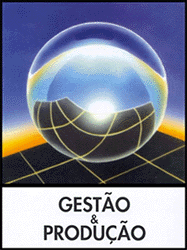The overall objective of this study is to analyze comparatively the constituent elements of organizational policies for science, technology and innovation (STI) and the management of industrial property in research institutions (RI). The specific objectives are 1) to identify and analyze comparatively the methods used in the valuation of patents by RIs and their respective indicators; 2) to check whether the patent valuation methods employed by technology transfer offices (TTO) of RI, with the advent of the Innovation Legislation, are adherent to the methods suggested by the current literature; 3) to verify the indicators used in the valuation of patents implemented in the RIs; and 4) to elaborate a comparative analysis. With regard to the methodology used, this research can be classified as exploratory, qualitative, documentary, and of literature and case studies. At the end of the study, we expect to resolve five research problems, formulated from the general objective and the specific objectives of the work. The findings indicate that the TTOs present different configurations adapted to their needs and tasks. The concern with empowerment is unanimous in all RIs visited. Extra budgetary and budgetary resources from funding agencies and foundations are used to support research, and technology-based incubators and spin off technology are considered as possible input ports of venture capitalists. Institutional relations are maintained with academic environments, government agencies, business, and the civil society in general. Decision-making processes are shared and decentralized, permeated by the autonomy of the researcher. This process shows a tendency to undergo changes due to the creation of knowledge management committees. Actions of social and environmental impact are arising from the activities carried out by the institution, but not necessarily geared to that end. The RIs visited are keen at the dissemination of knowledge, and instruments such as the institutions' websites, newsletters and journals are employed to this end. There was the possibility of increased institutional participation through awards, since these are, in general, an initiative of the researchers. Actions have been undertaken by the RIs visited to improve contract management, project management and process mapping. In terms of opportunities, the RIs studied foresee the obtainment of new financing sources, improvement in the training of their staff, and modernization of their parks. There are no patent valuation methodologies, and the institutional repositories have not been employed as revenue-generating sources. However, the valuation of the portfolio of patents and the follow-up of technological protection costs are duly recognized by RIs, because they contribute to a better qualification of institutional acquis. This study presents limitations regarding the subjective evaluation of respondents, associated with the fact that questionnaire replies contain nuances characteristic of the interpretation and understanding of each respondent regarding the inquiries conducted. Thus the research result belongs to the five cases studied, and it is impossible to be generalized.
Industrial property; Science, technology and innovation; Management control; Research institutions






